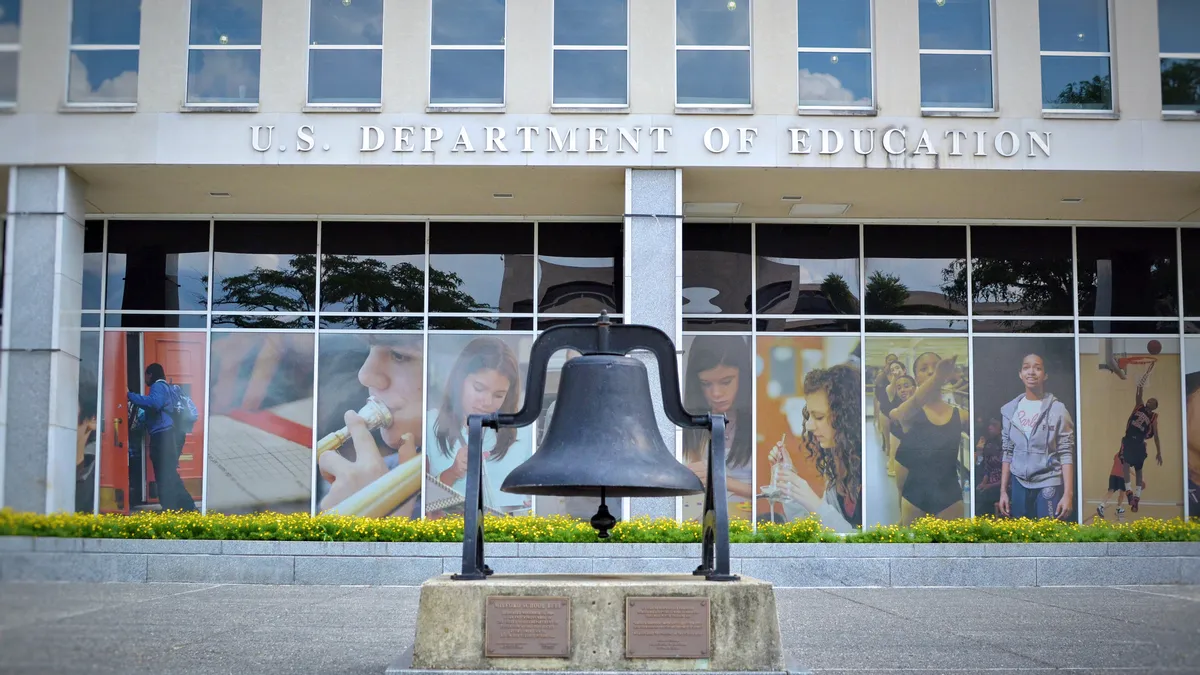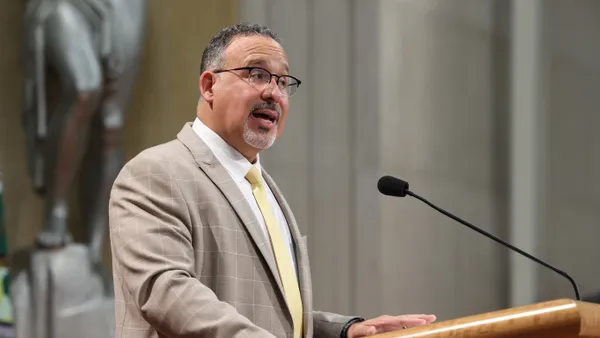Dive Brief:
- Apprenticeships, long used as a training mechanism for the building trades and manufacturing, increasingly are being used in other fields, according to a new report highlighting a large health care provider in Minnesota that is employing them to train nurses and help them obtain bachelor's degrees.
- Registered nurses in the U.S. can be certified with an associate degree, a bachelor's degree or a diploma from a hospital training program, but the nursing profession now advocates for nurses to have a bachelor's. The report argues that the apprenticeship model provides nurses with an affordable way to earn their four-year degree while making sure they receive critical, on-the-job training.
- More than 120 individuals have participated in Fairview Health Services' nursing apprenticeship in Minnesota. Participants must enroll in a university-based degree program, though they are eligible for tuition assistance from Fairview.
Dive Insight:
Apprenticeships were viewed favorably by education and labor officials under the Obama administration, but they have received even more attention from the Trump administration. Apprenticeships use private-sector support to make up for declining state and federal government funding for higher education, opening up pathways to college for lower-income students. However, some critics are concerned that overreliance on such training will only widen existing education and income gaps.
The U.S. Labor Department offers resources for colleges that hope to develop apprenticeships and supports a network of institutions that are working toward that goal, mostly community colleges and trade schools. Federal officials have contacted Fairview about ways to replicate their system, Inside Higher Ed reported.
South Carolina has emerged as an example for its efforts to develop apprenticeships through a state program that coordinates 965 registered apprenticeship programs across more than 1,000 occupations. And in Colorado, a program called Careerwise Colorado places high school students with employers for training in high-demand, high-wage fields. Participants can earn roughly $30,000 in wages over the course of the three-year program, which includes on-the-job training of up to 32 hours per week.
An official with an Illinois-based manufacturer that is working with Ivy Tech Community College in Terre Haute, Indiana, on a successful three-year-old apprenticeship program noted that students gaining entrance are celebrated like athletes signing letters of intent to play college sports. He said that is the way businesses should view apprenticeships — like scouts and coaches for sports teams looking to find and train top talent.
A new paper published this week from the Association of Public & Land-grant Universities noted that large research universities are increasing their focus on similar workforce development initiatives, which they have long left to two-year colleges and technical programs.













